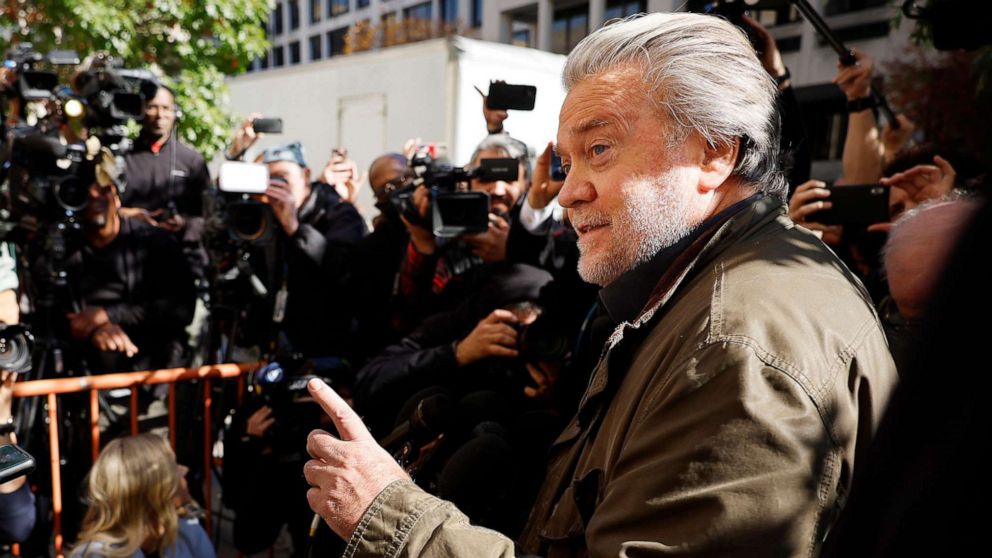
Former Trump adviser Steve Bannon was sentenced Friday following his conviction on two counts of criminal contempt of Congress, after he defied a subpoena from the House select committee investigating the Jan. 6 attack on the U.S. Capitol. He was subpoenaed by the Jan. 6 panel for records and testimony in September of last year. He refused to comply and was found guilty of contempt in July.